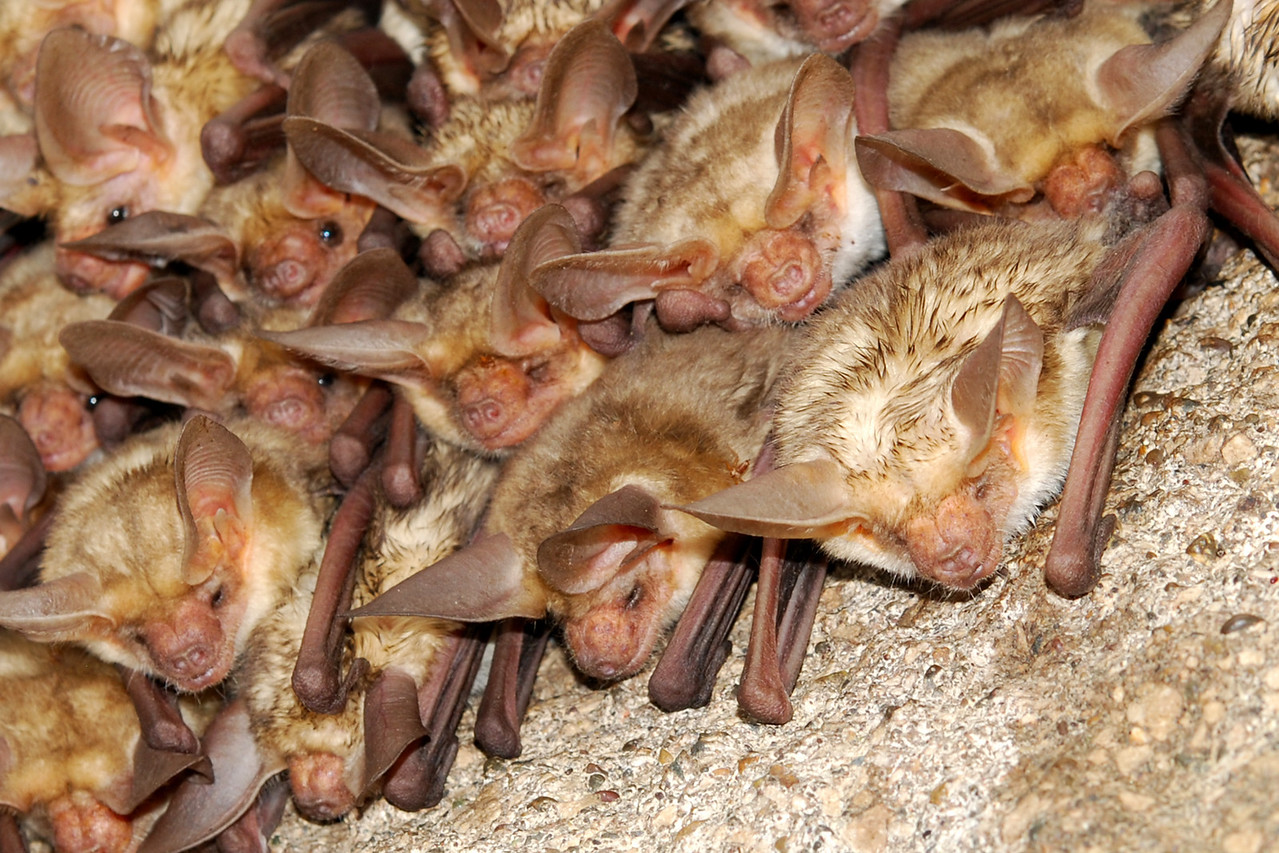
Friends of the Columbia Gorge invites you to a live webinar about bat conservation efforts in the Gorge and the Pacific Northwest. With mouths full of sharp teeth and iconic wingspans that scream with Halloween fright, bats are unique and misunderstood. In celebration of International Bat Week, we're shedding light on these dark, mysterious, flying mammals that are significant pollinators and pest controllers.
Join Friends online for a live discussion with Washington Department of Fish and Wildlife White-nose Syndrome Coordinator Abby Tobin on Thursday, Oct. 29 at 5 p.m. Pacific.
Bats are the only mammals that can consistently fly. Nocturnal, they sleep most of the day and come out at night to feed, an under-the-radar lifestyle that has proven difficult for researchers to follow.
As unique as they are feared, bats mostly stayed under the radar in the Pacific Northwest due to their nocturnal, hermit-like lifestyles until 2017, when a detrimental disease called white-nose syndrome was discovered for the first time west of the Rocky Mountains, in Washington state. White-nose is a fungus that is believed to be spread through contact and slowly takes over bats’ ability to normally sleep and feed, eventually leading to death. Researchers are trying to figure out what causes white-nose syndrome to save bats, which has been described as the largest disease to impact any mammal.
Join us live to get batty about bat conservation around the Columbia River Gorge National Scenic Area with Abby Tobin, the White-nose Syndrome Coordinator for Washington Department of Fish and Wildlife. Registration is free; register below.The webinar will be recorded and uploaded to Friends' YouTube page within a few days of the recording.
Featured speaker
Abby Tobin is the white-nose syndrome coordinator for Washington Department of Fish and Wildlife where she develops, coordinates, and implements bat conservation and white-nose syndrome management and research activities. She has been working with western bat species since 2008 in various positions for state and federal agencies. She received her master’s degree from Northern Arizona University where she investigated management and mitigation strategies to protect bat roosts. Abby was first drawn to bats through caving, temporarily visiting their homes. She was left with curiosity and a desire to support these critical yet poorly understood members of our ecosystem.
Host
Natasha Stone is Friends’ community engagement specialist. Natasha manages Friends’ outdoor youth education efforts and works to build a diverse and inclusive network of community partners to help protect, preserve, and steward the Columbia Gorge. Before joining Friends, Natasha worked at Oregon Public Broadcasting as a production assistant for the Think Out Loud radio program. A graduate of Oregon State University with a Bachelor of Science in Ethnic Studies, Natasha is passionate about working with underrepresented communities and has seen firsthand how outdoor recreation and education can be empowering tools for communities while working for Portland’s Immigrant and Refugee Community Organization.
(Bat photo: Friends' archive)